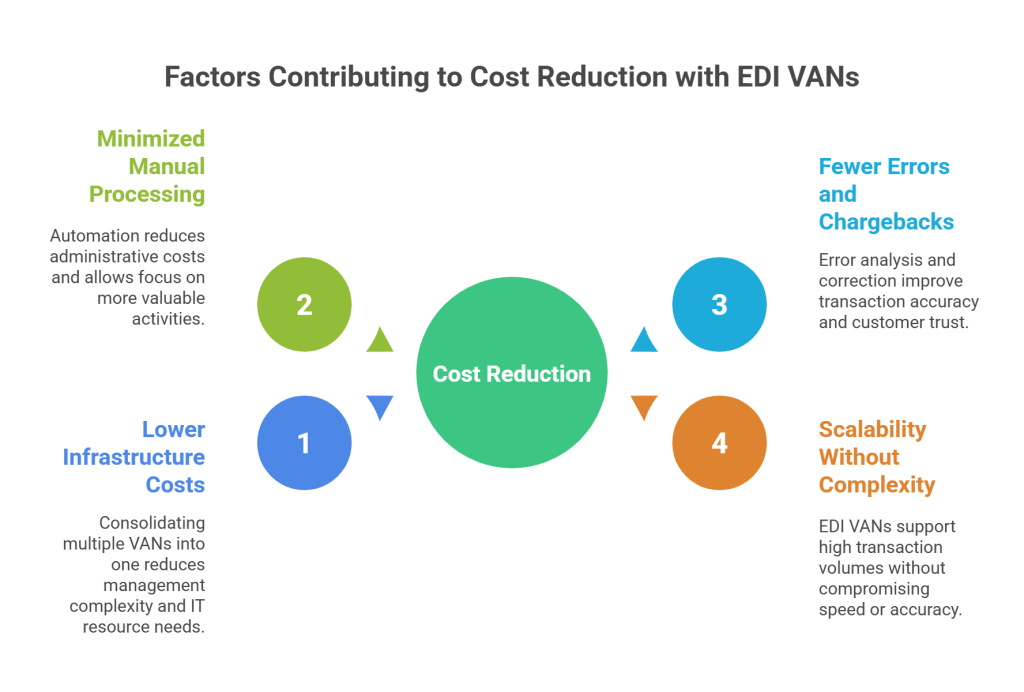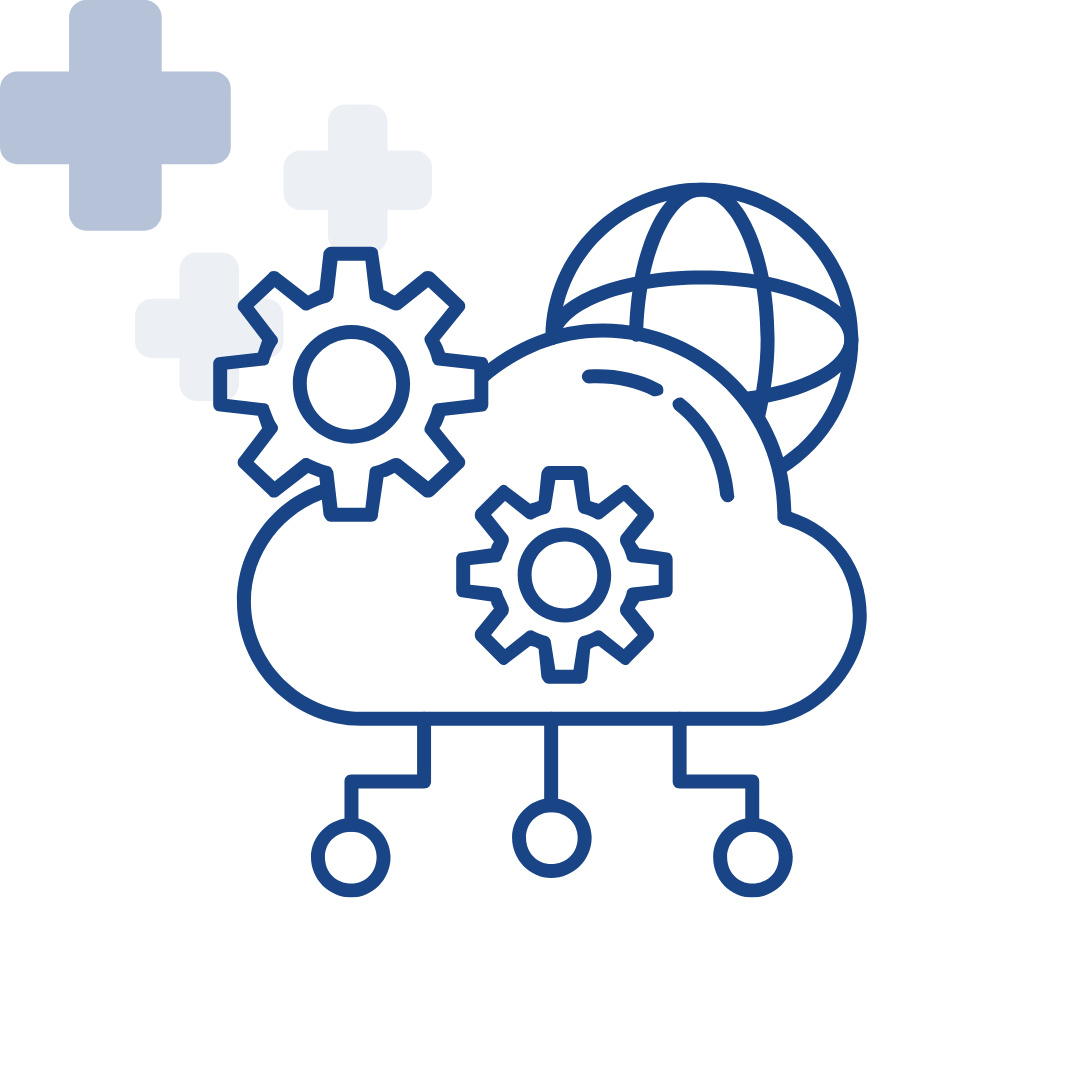Introduction
Cloud solutions for healthcare are transforming supply chains across the industry, with 70% of health systems likely to adopt a cloud-based approach to supply chain management by 2026. This significant shift is not without reason. In fact, 73% of organizations that have already transitioned report improved data security and privacy.
We’re witnessing a pivotal moment in healthcare supply chain technology as investment continues to grow. According to a 2024 survey, 35.5% of healthcare IT leaders plan to make further investments in their supply chain systems, while an additional 14% are looking to implement entirely new systems. The healthcare industry’s digital transformation is addressing long-standing challenges, including the $30 billion project to make electronic health records universally accessible.
The advantages of cloud-based supply chain management extend beyond security. Cloud platforms offer advanced data encryption techniques, audit trails, and automated compliance checks that ensure all transactions adhere to regulatory frameworks. Additionally, these solutions enable seamless integration between ERP, EHR, and SCM systems, creating an interconnected ecosystem that shares data effortlessly.
Throughout this article, we’ll explore how cloud-based EDI, VAN, GDSN, PIM, and Supply Chain Analytics solutions deliver real cost savings. Furthermore, we’ll examine how industry leaders like Commport Communications CommCARE provide specialized cloud-based B2B solutions tailored to the unique needs of the healthcare industry, helping organizations transform their supply chain operations and realize substantial financial benefits.
Key Takeaways
- Cloud EDI systems reduce healthcare administrative costs by $193 billion annually while cutting data entry errors by 80% through automated transaction processing.
- Real-time inventory visibility prevents equipment overspending by up to 50% and extends asset lifespan by 15-20% across healthcare facilities.
- Automated procure-to-pay processes achieve 79% touchless invoice rates, eliminating manual handling of thousands of invoices and reducing labor costs significantly.
- Cloud solutions enhance security with 73% of organizations reporting improved data protection through advanced encryption, audit trails, and automated compliance checks.
- Integrated platforms like Commport CommCARE offer affordable pricing making enterprise-level supply chain management accessible to healthcare providers of all sizes
From On-Prem to Cloud: The Shift in Healthcare Supply Chain Systems
Healthcare supply chain management has evolved considerably over the past three decades, moving from materials management information systems (MMIS) primarily for inventory management to comprehensive on-premise enterprise resource planning (ERP) systems. However, this evolution hasn’t kept pace with technological advancements, as many facilities still rely on outdated infrastructure from the 1990s.

1. Legacy ERP Limitations in Healthcare SCM
Traditional on-premise ERP systems present significant challenges for healthcare organizations. These systems typically function as “closed systems” incapable of communicating with other platforms, creating problematic data silos. Consequently, many healthcare facilities still conduct inventory management manually, with ordered quantities recorded on paper forms or spreadsheets. This inefficiency contributes to an estimated $760-935 billion in annual waste within the American healthcare system.
2. Why Cloud ERP is Replacing On-Prem Systems
The shift to cloud-based solutions offers substantial advantages. Unlike on-premise systems requiring significant investments in hardware, licensing, maintenance, and IT staff, cloud providers handle infrastructure and upkeep, reducing expenses through a pay-as-you-go model. This flexibility is particularly valuable for smaller healthcare providers without capital for extensive IT infrastructure.
Cloud solutions enable seamless integration between ERP, electronic health records, and supply chain management systems, establishing clean, comprehensive data foundations for advanced analytics. Health systems that have adopted cloud computing report streamlined operations, reduced costs, improved analytics, enhanced security, and fewer manual tasks.
3. Digital Transformation in Healthcare Supply Chain Strategy
The integration of cloud-based EDI (Electronic Data Interchange), VAN (Value-Added Network), GDSN (Global Data Synchronization Network), and PIM (Product Information Management) tools creates a digital ecosystem for modern supply chain management. These technologies enable real-time inventory visibility, automated demand forecasting, and efficient supplier management, preventing shortages while reducing waste.
Cloud-based supply chain solutions also support enhanced data transparency, helping healthcare organizations better negotiate with insurance companies and optimize pricing strategies. Subsequently, this digital transformation establishes the foundation for applying artificial intelligence in healthcare procurement processes.
Among industry leaders, the Commport CommCARE Suite stands out as an integrated cloud SCM platform specifically designed for healthcare organizations. This solution exemplifies how cloud technology can transform fragmented, manual processes into a cohesive, data-driven supply chain strategy.
Key Cloud-Based Tools Driving Cost Savings
Modern healthcare organizations increasingly rely on specialized cloud-based tools that deliver measurable cost savings. These technologies transform traditional supply chain processes into streamlined, data-driven operations.

1. Cloud-Based EDI for Seamless Transaction Automation
EDI automation reduces healthcare administrative costs by $193 billion annually through standardized electronic transactions. Moreover, cloud-based EDI solutions cut data entry errors by 80%, significantly improving data accuracy. Healthcare organizations that implement integrated e-Procurement solutions report 40% time savings and 10%+ cost savings within months of deployment.
2. Value of VAN (Value-Added Network) in Healthcare B2B Integration
Value-Added Networks function as secure mailboxes for electronic data exchange between business partners. Originally expensive at approximately $0.50 per kilocharacter, modern VAN services like Commport VAN now offer more affordable monthly subscription-based plans. These networks enable healthcare organizations to connect with over 1 million pre-existing EDI trading partners globally.
3. GDSN for Real-Time Product Data Synchronization
The Global Data Synchronization Network creates a single source of truth for product data across the entire healthcare supply chain. GDSN enables real-time sharing of product information between manufacturers, distributors, and healthcare providers. Essentially, this standardization helps identify non-contract/contract opportunities and increases transaction accuracy.
4. PIM (Product Information Management) for Catalog Accuracy
PIM systems centralize and manage product-related data for medical supplies, pharmaceuticals, and devices. Organizations implementing PIM report a 40% reduction in time spent on product data management and a 50% decrease in product-related discrepancies. Notably, PIM implementation has been shown to reduce medication errors by 45%.
5. Commport CommCARE Suite: Integrated Cloud SCM Platform
Commport Cloud Based Supply Chain Solutions for the Healthcare Industry. Affordable, Scalable, and Compliance Ready Solutions Trusted by 1400+ Healthcare Providers in Canada.
CommCARE delivers lean, efficient EDI functionality with predictable subscription-based monthly pricing. The platform provides seamless integration with ERP, WMS, and HMS systems, while supporting all major EDI standards and offering multiple connection options. With direct GDSN integration and PIM support, CommCARE enables healthcare providers to modernize their supply chains and reduce associated costs.
Operational Benefits of Cloud-Based Supply Chain Management Solutions
Cloud adoption in healthcare supply chains delivers immediate operational enhancements that translate to measurable cost savings. These systems transform everyday workflows through automation, visibility, and analytics.

1. Automated Procure-to-Pay (P2P) Reduces Manual Labor
P2P automation eliminates manual data entry and processing, dramatically reducing errors and labor costs. For example, Henry Ford Health achieved a 79% touchless invoice rate, eliminating manual handling of over 92,000 invoices in just six months. Organizations implementing these systems report up to 40% time savings and 95% supplier contract compliance.
2. Real-Time Inventory Visibility Across Facilities
Enterprise-wide visibility helps prevent hospitals from overspending on capital equipment by up to 50%. This transparency enables immediate resource allocation during disruptions. Equipment tracking extends asset lifespan by 15-20% while reducing emergency repairs.
3. Advanced Supply Chain Analytics for Demand Forecasting
Cloud SCM platforms leverage Big Data Analytics (BDA) to:
- Predict inventory needs based on historical patterns
- Identify high-risk patients and optimize resource allocation
- Enable data-driven decision making for improved performance
4. Mobile Access and Remote SCM Operations
Cloud services accessibility via smartphones and tablets ensures supply chain operations continue uninterrupted during remote work. This flexibility prevents disruptions even when staff cannot be physically present at healthcare facilities.
5. Scalability and Flexibility for Growing Health Systems
Healthcare organizations can scale computing resources without investing in new software or hardware. The pay-as-you-go model aligns IT budgets with actual needs while adapting to fluctuations in patient demand.
Security, Compliance, and Vendor Selection Considerations

Security concerns have risen dramatically in healthcare, with a 93% increase in large breaches and a 278% increase in ransomware attacks. Properly implemented cloud solutions address these vulnerabilities while ensuring regulatory compliance.
1. Data Encryption and Audit Trails in CommCARE
Commport CommCARE maintains GDPR, and SOC2 compliance with robust encryption methods. All data is encrypted during storage and transmission, whereas regular compliance audits identify vulnerabilities and ensure proper protection of sensitive information.
2. Reducing Fraud Risk with Digital Payment Automation
Digital payment automation through cloud-based systems eliminates paper checks, thereby reducing associated fraud risks. Indeed, 73% of organizations that transitioned to cloud-based SCM reported improved data security, whereas check payments remain the most vulnerable payment method.
3. Choosing a Cloud Partner with Healthcare SCM Expertise
When selecting a cloud provider, prioritize those with healthcare supply chain expertise. Look for vendors that offer comprehensive security measures, compliance management features, and regular security audits. Naturally, the right partner should provide encryption, authentication, and continuous monitoring to protect patient data.
Conclusion
Healthcare organizations now stand at a critical juncture where cloud solutions offer transformative benefits throughout their supply chain operations. Throughout this article, we have seen how the shift from legacy on-premise systems to cloud-based infrastructure delivers substantial cost reductions and operational improvements.
Cloud-based EDI systems have proven to slash administrative costs through standardized electronic transactions, consequently reducing data entry errors by 80%. Similarly, modern VAN services enable healthcare organizations to connect securely with millions of trading partners worldwide at significantly lower costs than traditional systems.
Additionally, GDSN creates a unified source of truth for product data, therefore enabling real-time information sharing between all supply chain participants. PIM systems further enhance this ecosystem by centralizing product information, thus reducing time spent on data management by 40% and decreasing product-related discrepancies by half.
The Commport CommCARE Suite stands out as an industry leader, providing affordable, scalable cloud-based B2B solutions specifically designed for healthcare providers. Their integrated platform delivers lean EDI functionality with predictable pricing while supporting all major standards and offering seamless integration with existing systems.
Supply chain analytics tools built into these cloud platforms fundamentally change how healthcare organizations forecast demand, track inventory, and allocate resources. Health systems using these tools report remarkable improvements – from achieving touchless invoice rates of nearly 80% to extending equipment lifespan by up to 20%.
Commport CommCARE Solutions for Healthcare Industry
Need Help? Download: Commport's EDI Buyers Guide
Unlock the full potential of your supply chain with our comprehensive EDI Buyer's Guide — your first step towards seamless, efficient, and error-free transactions
Frequently Asked Questions
Cloud computing significantly reduces expenses by eliminating the need for extensive physical infrastructure and IT staff. Healthcare organizations can scale resources as needed without investing in hardware, resulting in lower operational costs and improved flexibility.
Cloud-based supply chain management offers real-time inventory visibility, automated procure-to-pay processes, and advanced analytics for demand forecasting. These features help prevent overspending, extend asset lifespan, and dramatically reduce manual labor costs.
Cloud solutions enhance data security through robust encryption methods, regular compliance audits, and automated security checks. Many organizations report improved data protection after transitioning to cloud-based systems, addressing the rising concerns of data breaches in healthcare.
Electronic Data Interchange (EDI) automation significantly reduces administrative costs by standardizing electronic transactions. It cuts data entry errors by up to 80% and can lead to 40% time savings and 10%+ cost savings within months of implementation.
Platforms like CommCARE offer integrated, affordable, and scalable cloud-based supply chain solutions specifically designed for healthcare. They provide seamless integration with existing systems, support major EDI standards, and offer predictable pricing, making enterprise-level supply chain management accessible to healthcare providers of all sizes.





